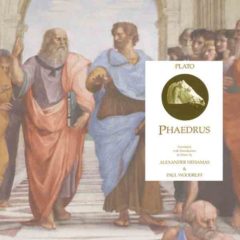Monica Vilhauer earned her Ph.D. in philosophy at the New School for Social Research in New York, and tenure at Roanoke College in Virginia. After a decade of teaching philosophy in college classrooms, Monica moved back home to Oregon and founded Curious Soul Philosophy, a Portland-based business offering workshops and retreats that emphasize the practical value of philosophy for everyday life. She also offers individual philosophical counseling sessions, in which clients can work through issues of meaning and purpose, values and ethics, identity and self-development, effective communication, and power and justice, in the effort to build a more intentional, empowered, and authentic life. Monica’s specialties are in ethics, social-political philosophy, existentialism, feminism, and the philosophy of communication. She is author of Gadamer’s Ethics of Play: Hermeneutics and the Other (Lexington Books, 2010), which analyzes the ethical dimensions of dialogue and understanding. Monica will be leading Plato’s Phaedrus: Love, Truth And The Power Of Speech this Winter. Here is what Monica has to say about this seminar!
Q: What interests/excites you about the author(s) your Delve is focused on?
A: I love leading seminars on Plato’s dialogues because they are written in a form that opens up a virtual playground for interpretation. The dialogue form mimics living philosophical conversation, with all its twists and turns, and invites us into a philosophical conversation with the text and each other. This allows us to do our own thinking along with the characters.  In fact, it demands of us to do our own thinking, because in the dialogue format we never hear Plato speak in his own voice, and we are never told what the author’s answers are to various philosophical questions. So it is up to us to begin to figure out the answers for ourselves.I am particularly interested in the perennial questions of life that Plato writes about: What does it mean to live a good, healthy life? What does it mean to love genuinely? How can we seek truth together, and battle against the manipulators who care only for power? How do we speak to each other so that we can communicate well, find out what’s right and wrong, and pursue a common good? These problems all feel very urgent today.
In fact, it demands of us to do our own thinking, because in the dialogue format we never hear Plato speak in his own voice, and we are never told what the author’s answers are to various philosophical questions. So it is up to us to begin to figure out the answers for ourselves.I am particularly interested in the perennial questions of life that Plato writes about: What does it mean to live a good, healthy life? What does it mean to love genuinely? How can we seek truth together, and battle against the manipulators who care only for power? How do we speak to each other so that we can communicate well, find out what’s right and wrong, and pursue a common good? These problems all feel very urgent today.
Q:What can participants expect to happen in your Delve seminar?
A: Participants can expect engagement in a group inquiry into the text, and into the larger questions about the human condition that the text suggests. Participants can expect intellectual stimulation, a growing sensitivity to the struggles of human beings, and the development of new perspectives on their own lives. They can also expect a place to try out different interpretations, and to risk big questions. Participants can definitely expect to leave with more questions than they came with, and with more questions than answers — a sign that philosophical thinking is in full swing! Participants can expect a friendly atmosphere, the company of enthusiastic readers, and usually some good humor along the way.
Q: What do you think is the best way to have a good Delve experience in your seminar?
A: Coming with an openness to a variety of interpretations of the text, and the attitude that we can all learn from each other, is a great way to start. Approaching the discussion as a place to try out interpretations and to ask questions of the group can help you to get involved and participate, even if you’re feeling confused about what you read (we’re all confused, that’s why we’re here to talk about it!). It’s worth mentioning that Delve seminars are different from classes in that the “guide” is not in the role of a teacher, but is in the role of a facilitator. The guide is a fellow inquirer, asker of questions, and generator of discussion. Looking to one’s fellow readers for ideas, rather than to the facilitator for “answers”, keeps the process moving and fosters maximum participation.
Q: What do you like most about being a Delve guide?
A: Engaging in philosophy with adults who may have never read philosophy before, or who may have last read philosophy as a teenager, is such a rewarding experience. Delving in to timeless questions about how to live, how to love, and how to learn, with adults full of life experience, is a truly illuminating experience. I learn so much from the contributions of the group. When questions from the text are applied to our own personal and political lives, fresh thinking about our current world opens up, and a unique community of inquirers is created. Such spaces of critical inquiry, civil dialogue, openness to new ideas, and creativity are rare in today’s society. I am honored to be a part of one of them!


